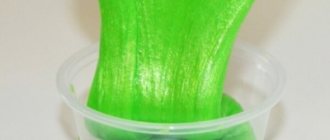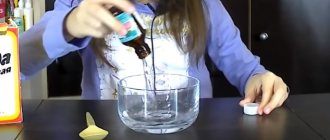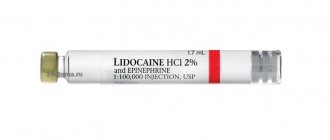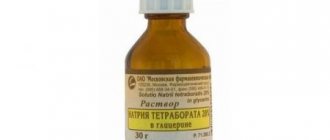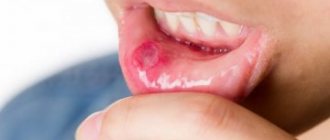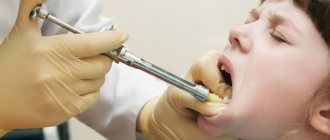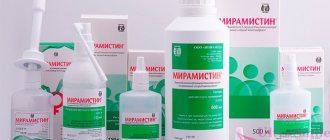Indications for use
Before purchasing a solution, you must consult a specialist. The drug is intended for local use and is effective for the following pathologies:
- Fungal infection of the vagina;
- Bedsores;
- Diaper rash;
- Stomatitis;
- Pharyngitis;
- Tanzillite.
Treatment and prevention of fungal infections with sodium tetraborate in glycerin should be discussed with your doctor. Therapy for vaginal candidiasis should be carried out by medical personnel, since if the procedures are carried out independently, there is a risk of relapse.
Characteristics of the drug
The therapeutic effect of the drug is provided by sodium tetraborate (or borax) - a substance that is a derivative of boric or, more precisely, tetraboric acid.
The compound has strong bacteriostatic and antiseptic properties. The mechanism of its action is to come into contact with pathogenic microorganisms, further blocking their attachment to tissues and destroying fungal mycelium. As a result of such exposure, infectious agents are deprived of the ability to function and form colonies. Despite suppressing the growth of fungi, the boric acid derivative does not have fungistatic or fungicidal properties, and therefore does not directly have antimycotic effects. Borax is often included in combination medications due to its insecticidal and antiseptic properties. In particular, the substance is used for topical use in the treatment of respiratory diseases.
The excipient of the drug is glycerin. It is included in the composition due to its ability to reduce the local irritant effect of sodium tetraborate, as well as to accelerate its transport through the skin and mucous tissues. As a result of drug interaction, the drug easily and quickly penetrates the layers of the dermis, binds to pathogens and suppresses their activity.
The medicinal solution has a bactericidal effect on some types of cocci, as well as bacteria, Trichomonas. Actively suppresses the functioning of yeast fungi of the genus Candida, which are the culprits of thrush.
The drug is well absorbed through the damaged surface of the dermis and into the gastrointestinal tract. When used systematically, it is retained in the bones and liver. It does not form metabolites and is excreted unchanged by the kidneys and through the stomach.
Sodium tetraborate is prescribed for thrush of various localizations (oral cavity, upper respiratory and urinary tract, reproductive system), as well as for the treatment of bedsores and diaper rash.
Contraindications for use
Contraindications to the use of the solution include:
- Pregnancy and breastfeeding period;
- Age up to 10 years (in exceptional cases, treatment of stomatitis in children is carried out under the supervision of a doctor);
- Hypersensitivity to one of the components of the drug;
- Violation of the integrity of the skin or mucous membranes.
The solution should not be taken orally. Partial ingestion is acceptable when treating the oral cavity during the treatment of stomatitis.
Before the first use, you must make sure that there is no allergic reaction to the drug. To do this, a small amount of sodium tetraborate must be applied to the area of skin or mucous membrane that is to be treated. If no discomfort appears within 2 hours, the solution can be used for treatment.
Sodium tetraborate
Registration number: LP-000641
Trade name: Sodium tetraborate.
Chemical name: Sodium tetraborate decahydrate.
Dosage form: Solution for local and external use.
Composition: Active substance:
- Sodium tetraborate decahydrate - 20.0 g
Excipients:
- Glycerol (glycerin) - 72.8 g
- Purified water - 7.2 g
Description: Colorless transparent or slightly opalescent viscous liquid.
Pharmacotherapeutic group: Antiseptic.
ATX code: D08AD
Pharmacological action: Has bacteriostatic activity. Removes the mycelium of the fungus from the mucous membranes, disrupts the process of attachment of the fungus to the mucous membranes and, due to this, inhibits its reproduction (it is not an antifungal drug, because it does not have a fungicidal or fungistatic effect).
Pharmacokinetics: Systemic absorption for local and external use is low; absorbed in the gastrointestinal tract with partial swallowing (by lubricating the mucous membrane of the oral cavity, pharynx), and can be absorbed through damaged skin. Deposited in bone tissue and liver. It is excreted unchanged by the kidneys and through the intestines within one week.
Indications for use: Candidiasis of the oral mucosa, pharynx, upper respiratory tract, external genitalia. Diaper rash, bedsores.
Contraindications:
Hypersensitivity to the drug; violation of the integrity of the skin (during skin treatment). Pregnancy, lactation period.
Directions for use and dosage: Locally and externally. Candidiasis of the mucous membrane of the oral cavity, pharynx, upper respiratory tract: lubricate the affected areas of the mucous membrane 2 - 3 times a day. The course of treatment is 3 - 7 days. The frequency of use and duration of treatment in children must be agreed with a doctor. Vaginal candidiasis (thrush): before using the drug, it is necessary to douche with boiled water or infusion of chamomile flowers. Then moisten a cotton swab in a sodium tetraborate solution and insert it into the vagina for 20 - 30 minutes. For minor discharge and itching, the drug is used once a day (at night), and for heavy discharge, 2 times a day (morning and night). The course of treatment is 5 - 7 days. Diaper rash, bedsores: lubricate the affected areas of the skin 2 - 3 times a day. The duration of treatment depends on the degree and area of the lesion.
Side effect: Hyperemia and burning sensation at the site of application or administration of the drug.
Overdose: Cases of overdose have not been registered to date.
Interaction with other drugs: Not known.
Special instructions: When monotherapy for vaginal candidiasis, in order to increase efficiency, it is necessary that treatment procedures be carried out by medical personnel many times; otherwise, the mycelium of the fungus may linger in the crypts of the vaginal mucosa, which will lead to relapse of the disease.
Release form: Solution for local and external use 20%. 30 g in orange glass bottles. Each bottle, along with instructions for use, is placed in a cardboard box. It is allowed to place bottles with an equal number of instructions for use in a group package.
Storage conditions: In a place protected from light at a temperature not exceeding 25 ° C. Keep out of the reach of children.
Shelf life: 3 years. Do not use after the expiration date.
Conditions for dispensing from pharmacies: Without a prescription.
Directions for use and dosage
Depends on the diagnosis. The solution should be used by rinsing, lubricating, douching twice a day. It is worth deciding in advance where to order the drug; you can also use the delivery service.
When treating stomatitis in children and adults, on the recommendation of a pediatrician and therapist, use a cotton or gauze swab soaked in a solution. Treatment of the oral cavity should be carried out 2 times a day for 6 days. If the symptoms of a fungal infection have resolved earlier, treatment must be continued to avoid relapse.
Before treating thrush, you need to perform preparatory procedures. After pre-treatment, a cotton or gauze swab is moistened in the solution and inserted into the female genital organs for 30-35 minutes. During this time, the patient should be in a supine position with the pelvis elevated.
For mild symptoms of candidiasis, the procedure is carried out once a day. In the chronic form of the disease, 2 times a day. The number of procedures in the treatment of thrush is determined by the doctor, based on the patient’s condition and the results of therapy.
Treatment of the upper respiratory tract is carried out by lubricating the tonsils. To do this, you can use a cotton or gauze swab. The procedure must be repeated 5-6 times a day until the symptoms of the disease completely disappear.
One bottle of the drug is enough for one period of treatment. It turns out to be quite economical, since the price at the pharmacy does not exceed 100 rubles. For such a price, every buyer can afford the drug.
Sodium Tetraborate in glycerin solution for external and local use 20% fl 30g
Compound
active substance: Sodium tetraborate decahydrate - 20 g Excipient: Glycerin (glycerol) - 80 g
Pharmacokinetics
Systemic absorption for local and external use is low; absorbed in the gastrointestinal tract with partial swallowing (by lubricating the mucous membrane of the oral cavity, pharynx), and can be absorbed through damaged skin. Deposited in bone tissue and liver. It is excreted unchanged by the kidneys and through the intestines within one week.
Indications for use
Candidiasis lesions of the mucous membrane of the oral cavity, pharynx, genital organs; diaper rash, bedsores. If necessary, please consult your doctor before using the medicine.
Contraindications
Hypersensitivity to the components of the drug, pregnancy, lactation, childhood. Violation of the integrity of the mucous membrane and skin.
Directions for use and doses
Locally and externally. Age category of patients: adults. Externally - to lubricate the skin 2-3 times a day. Locally - to lubricate the oral mucosa. Lubricate the affected areas of the oral mucosa 2-3 times a day. The course of treatment is 3-7 days. When treating vaginal candidiasis (thrush), before using the drug, it is necessary to douche with boiled water or chamomile solution, after which a tampon soaked in the drug is inserted into the vagina for 20-30 minutes. The frequency of use and course of treatment depend on the severity of the disease. For minor discharge and itching, the drug is used once a day, preferably at night, and for heavy discharge, the drug is used 2 times a day (morning and evening) for 5-7 days. If there is no improvement after treatment or new symptoms appear, you should consult your doctor. Use the drug only according to the method of use and in the doses indicated in the instructions. If necessary, please consult your doctor before using the medicine.
Storage conditions
In a place protected from light, at a temperature not exceeding 30 °C. Keep out of the reach of children.
Best before date
3 years. Do not use after the expiration date stated on the packaging.
special instructions
The condition for effectiveness in monotherapy of vaginal candidiasis is the need for medical procedures to be carried out by medical personnel and multiple treatments; otherwise, fungal cells may linger in the vaginal crypts and lead to relapse. Read the instructions carefully before you start using the drug. Save the instructions, you may need them again. If you have any questions, consult your doctor. The medicine you are using is intended for you personally and should not be given to others as it may cause harm to them even if they have the same symptoms as you.
Description
Colorless, viscous liquid.
Conditions for dispensing from pharmacies
On prescription
Dosage form
solution for local and external use
Use in children
Contraindicated.
Manufacturer and organization accepting consumer complaints
IVANOVSKAYA Pharmaceutical Factory, JSC
Pharmacodynamics
Antiseptic. Has bacteriostatic activity. Effective against candidiasis. Removes the mycelium of the fungus from the mucous membranes, disrupts the process of attachment of the fungus to the mucous membranes and inhibits its reproduction (it is not an antifungal drug, because it does not have a fungicidal or fungistatic effect).
Side effects
Allergic reactions; hyperemia, burning sensation at the site of application of the drug. If any of the side effects indicated in the instructions get worse, or you notice any other side effects not listed in the instructions, tell your doctor.
Use during pregnancy and breastfeeding
The use of the drug during pregnancy and lactation is contraindicated.
Interaction
No information available.
Overdose
Symptoms after accidental ingestion (lethal dose for adults - 10-20 g, toxic concentration in the blood - 40 mg/l, lethal - 50 mg/l): abdominal pain, vomiting, loss of appetite, diarrhea, dehydration, weakness, confusion consciousness, dermatitis, menstrual irregularities, anemia, twitching of the muscles of the face and limbs, alopecia, dysfunction of the heart, liver and kidneys. Treatment: gastric lavage, forced diuresis, in case of severe poisoning - hemodialysis, IM - riboflavin mononucleotide 10 mg/day, correction of water-electrolyte balance and acidosis: IV infusion of sodium bicarbonate solution, plasma-substituting solutions, sodium chloride and dextrose solution . For abdominal pain - subcutaneous injection of 1 ml of 0.1% atropine solution, 1 ml of 0.2% platyphylline solution, 1 ml of 1% promedol solution, intravenous dextrose-procaine mixture (50 ml of 2% procaine solution and 500 ml of 5% dextrose solution). Maintaining the functions of the cardiovascular system. There is no information about the symptoms of overdose with local and external use of the drug.
Impact on the ability to drive vehicles and operate machinery
No information available.
Overdose
An overdose of a solution of sodium tetraborate in glycerin is very dangerous, since the lethal dose is only 10-15 grams for an adult. Therefore, despite the fact that the drug is inexpensive, you should buy it only for its intended use.
If you overdose with a smaller amount of solution, the following symptoms may occur:
- Disturbances in the functioning of the digestive organs;
- Weakness, dizziness, even loss of consciousness;
- Intoxication of the liver and kidneys;
- Limb spasms;
- Cardiopalmus.
If there are one or more signs of a drug overdose, you should urgently seek medical help. You can do gastric lavage yourself. To do this, use warm boiled water or a weak saline solution. After drinking 6-7 glasses of water, you need to induce vomiting by pressing your fingers on the root of the tongue. Repeat the procedure several times.
How to use Sodium tetraborate
Like any medicine, it is highly undesirable to use the drug for therapy independently, without medical prescription and supervision. In addition, this is due to the characteristics of borax: the substance does not affect the growth and reproduction of fungi, does not destroy their spores, but only prevents the fixation of microorganisms in mucous tissues. And if, after the use of Sodium tetraborate, only partial washing away of the infection occurs, then the surviving pathogens will inevitably cause a relapse of the disease. To prevent its return, the doctor must monitor the progress of treatment: check how effectively the drug has washed away the infection. For this reason, the specifics of treatment for borax should be determined by the treating specialist.
In pediatrics
For stomatitis in newborns, the product is used to wipe the oral mucosa using a sterile stick or cotton wool. The regularity of procedures for thrush in infants is 2-3 r./s. Course – from 3 to 7 days.
In gynecology
Borax in glycerin for thrush is used for lubrication, applications, douching, applied 2 to 3 times a day. The duration of therapy is determined by the doctor in accordance with the woman’s testimony.
Instructions for use recommend using the drug after hygiene procedures for thrush (vaginal candidiasis). After this, it is advisable to douche with chamomile decoction or boiled water at a comfortable temperature and then treat the infected area with medication: wipe with a cotton swab or disk soaked in borax, or place inside as a candle for 20-30 minutes.
The frequency and duration of therapy depend on the severity of candidiasis: for light discharge, procedures are carried out once a day (preferably at night), and for heavy discharge, twice a day (morning and evening). The course of therapy is individual for each woman, on average its duration is 1 week.
Colpitis: vaginal douching is indicated for treatment. The procedure is carried out 1-2 times per day. after hygiene procedures. During hygiene therapy, it is recommended to use slightly alkaline detergents or soaps with a neutral pH balance, and change linens, washcloths and towels daily.
During pregnancy and pregnancy
The drug Sodium tetraborate is prohibited for therapy during pregnancy. If it is not possible to replace it with another medicine, the doctor may consider the possibility of using it on an individual basis.
In addition to pregnant women, the drug should not be used by nursing women, since there is no proven data on its safety for the child.
Why does itching and burning occur in the intimate area during pregnancy?
While expecting a baby, a woman’s hormonal background is completely restructured, as a result the vaginal microflora changes, which leads to the appearance of pathogenic bacteria and fungi that cause discomfort. If you add to this the wearing of synthetic underwear, the use of sanitary pads with fragrances, and too hot weather, then unpleasant symptoms such as dryness, burning and itching in the intimate area may appear during pregnancy. Many women are ready to sacrifice good health for the health of their baby. Fearing taking medications, they endure discomfort until the birth. However, itching, pain and burning during pregnancy force the expectant mother to be in a state of constant stress, which only increases the discomfort. If you feel discomfort in the intimate area, consult a doctor who will tell you what is causing it and help you choose the right treatment.
